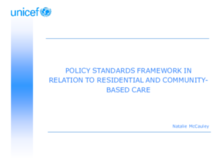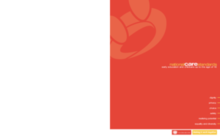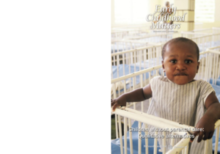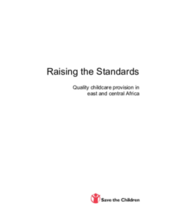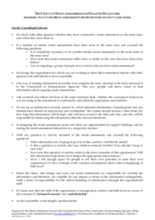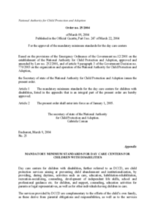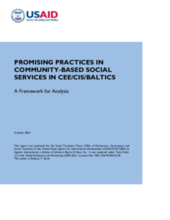Displaying 331 - 340 of 372
This presentation from UNICEF was given at the Alternative Care Workshop in Bangkok in November 2005. It outlines the standards and principles for residential and community-based care in the region.
A set of standards for early education and childcare services for children and young people up to the age of 16 years operating in the public, private and voluntary sectors, and in domestic or non-domestic premises.
Collection of articles highlighting suggestions on how to improve existing mechanisms for providing adequate care. Major article on the current state of international thinking on children without parental care.
A guideline to establish and promote good practice in a variety of childcare settings through the application of quality indicators. The indicators address professional practice, quality of care, caregivers, resources and administration.
A set of standards guiding services for children who have been adopted, birth families, and adoptive parents.
Lists ethical “do’s and dont's” specific to Consultants/Advisors, Managers/Supervisors, and Field-Level Workers arranging and conducting Needs Assessments in disaster situations.
Serves as an example of fostering service standards from the perspective of children, birth families, and foster caregivers
Outlines minimum standards for the operation of a day care center for children with disabilities in Romania.
Provides a framework for analysis of community-based social welfare services and linkages with government structures. Includes analysis of alternative care provision, de-institutionalization, programming for children with disabilities, standards of care, and overall social welfare sector reform.
A set of standards for residential settings, including the young person’s welcome into care, the quality of care they should receive, contact arrangements, and listening and responding to the views of young people.

